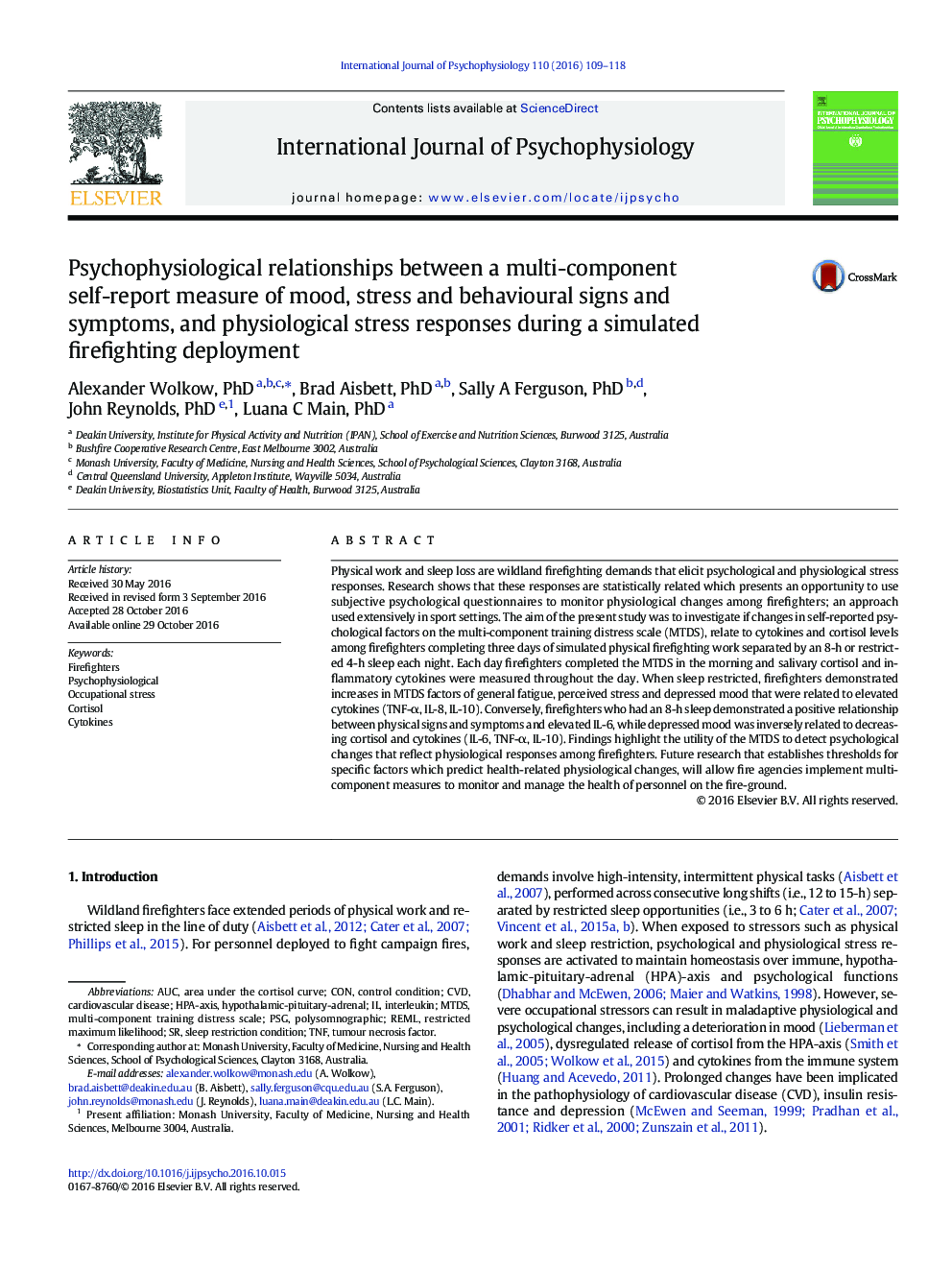| کد مقاله | کد نشریه | سال انتشار | مقاله انگلیسی | نسخه تمام متن |
|---|---|---|---|---|
| 5042389 | 1474386 | 2016 | 10 صفحه PDF | دانلود رایگان |
- Firefighters displayed increases in MTDS factors related to cortisol and cytokines.
- Sleep restriction modified relationships between MTDS factors and stress responses.
- Findings indicate the potential utility of the MTDS for future use in firefighters.
Physical work and sleep loss are wildland firefighting demands that elicit psychological and physiological stress responses. Research shows that these responses are statistically related which presents an opportunity to use subjective psychological questionnaires to monitor physiological changes among firefighters; an approach used extensively in sport settings. The aim of the present study was to investigate if changes in self-reported psychological factors on the multi-component training distress scale (MTDS), relate to cytokines and cortisol levels among firefighters completing three days of simulated physical firefighting work separated by an 8-h or restricted 4-h sleep each night. Each day firefighters completed the MTDS in the morning and salivary cortisol and inflammatory cytokines were measured throughout the day. When sleep restricted, firefighters demonstrated increases in MTDS factors of general fatigue, perceived stress and depressed mood that were related to elevated cytokines (TNF-α, IL-8, IL-10). Conversely, firefighters who had an 8-h sleep demonstrated a positive relationship between physical signs and symptoms and elevated IL-6, while depressed mood was inversely related to decreasing cortisol and cytokines (IL-6, TNF-α, IL-10). Findings highlight the utility of the MTDS to detect psychological changes that reflect physiological responses among firefighters. Future research that establishes thresholds for specific factors which predict health-related physiological changes, will allow fire agencies implement multi-component measures to monitor and manage the health of personnel on the fire-ground.
Journal: International Journal of Psychophysiology - Volume 110, December 2016, Pages 109-118
